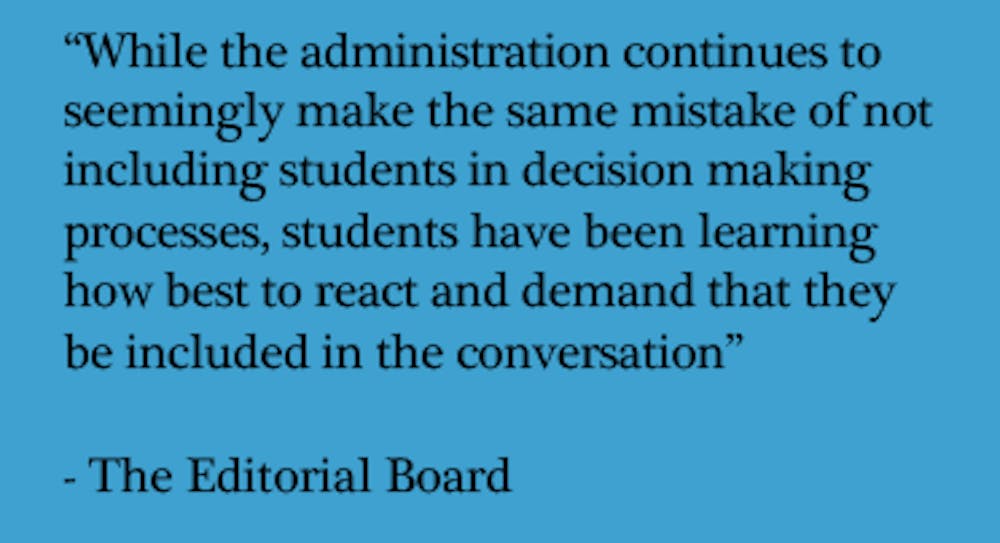Last Friday, Maryland state legislators announced that they are withdrawing their support for the bill that would have allowed the University to create a private police force. This announcement came as a victory for the many student and community organizers who have been working tirelessly over the past couple of weeks to defeat the bill.
In a surprise email on March 5, the University announced their support for this bill. Within a matter of days, students held a protest where they outlined clear arguments against the University’s proposals and marched to University President Ronald J. Daniels’ home to emphasize their demands. In the ensuing weeks, they organized phone banks to call state delegates, collaborated with neighborhood organizations and traveled to the state house in Annapolis, Md. to testify against the bill. Throughout this entire process, students have proven to be methodical and conscientious in taking a research-based approach to justify their cause.
We at The News-Letter have been busy as well, researching other university police departments, tracking the legislation and following the efforts of these student activists. Though this bill will not be voted on in this year’s state legislative session, it will likely return next year as both the University and students do more research as to what a private police force would entail. In the meantime, we would like to take a moment to look back.
We have been through this process before. The University announces a controversial decision — revoking covered grades in spring 2016, threatening to close the Humanities Center in fall 2016, or, most recently, supporting the creation of a private police force — and students are left to read the emails and question how Hopkins arrived at such a decision.
We have heard accusations of the University not being transparent before, not only from student activists but also in The News-Letter’s past editorials. This is a recurring pattern and students are tired of it.
While the administration continues to seemingly make the same mistake of not including students in decision making processes, students have been learning how best to react and demand that they be included in the conversation.
In the weeks following March 5, it was made apparent that students had learned the lessons that our University had unwittingly taught them. They mobilized efficiently, researched thoroughly and made their cause known very publicly.
We urge administrators to also learn from the past in how they decide to announce the changes that would affect our student body and, when relevant, community members. Perhaps their police force bill’s failure will hammer home a point that students have been raising for years: the University needs to be clear in how it incorporates student voices in schoolwide decisions.
We do acknowledge that the loudest student voices often dominate campus conversations and that some students are afraid to publically share differing opinions. We want as many voices as possible to be heard on campus, because as students, we all have the right to influence the direction our school takes. However, the pattern of surprise announcement after surprise announcement does not include anyone in the school’s decision making processes either. When the University makes a seemingly unilateral decision, they fail to incorporate the voices of students who support or oppose their decision, and everyone in between.
As administrators began addressing the backlash towards the private police, they realized they had again violated the trust of both the student body and the surrounding community.
In a meeting with the Charles Village Community Association, community members called upon Senior Vice President for Finance and Administration Daniel Ennis to publicly apologize, and he did so on behalf of the University. Apologies can only go so far in repairing this trust.
Moving forward — if the University wants to be sincere with both its students and with Baltimore — Hopkins needs to make it clear that it has included a wide range of student and community member concerns in their decision making process.
Until then, we know that students are prepared to make their voices heard, whether the University listens or not.





